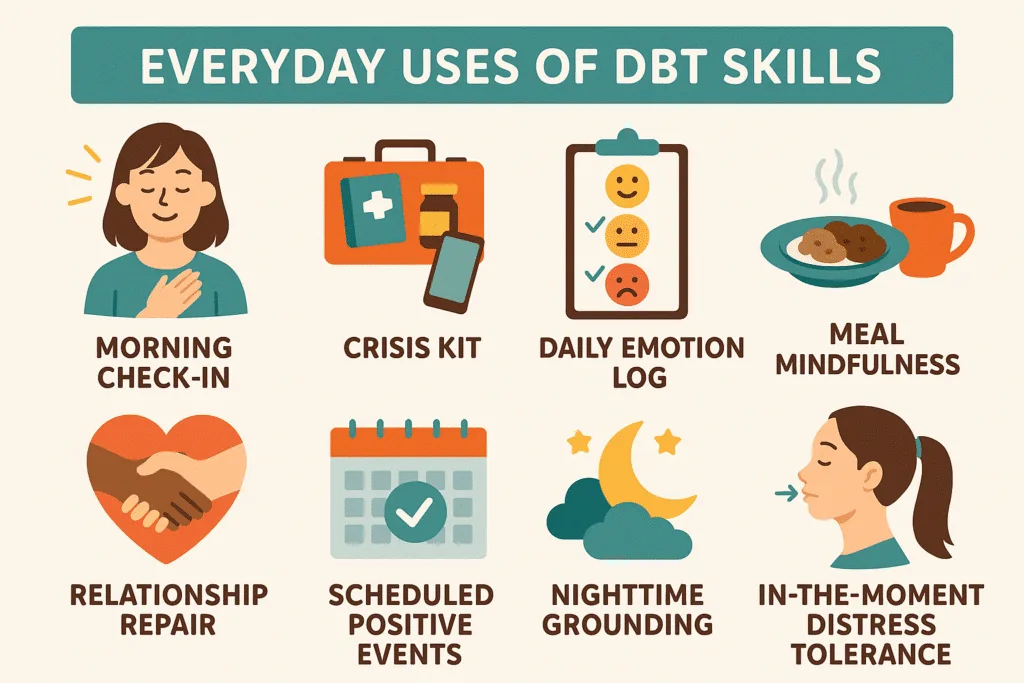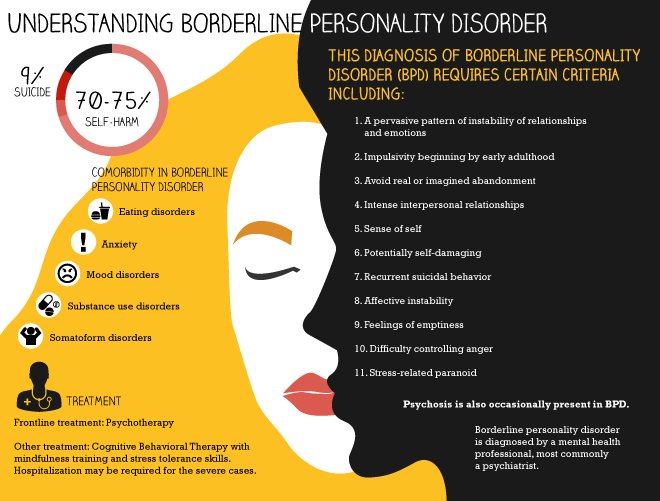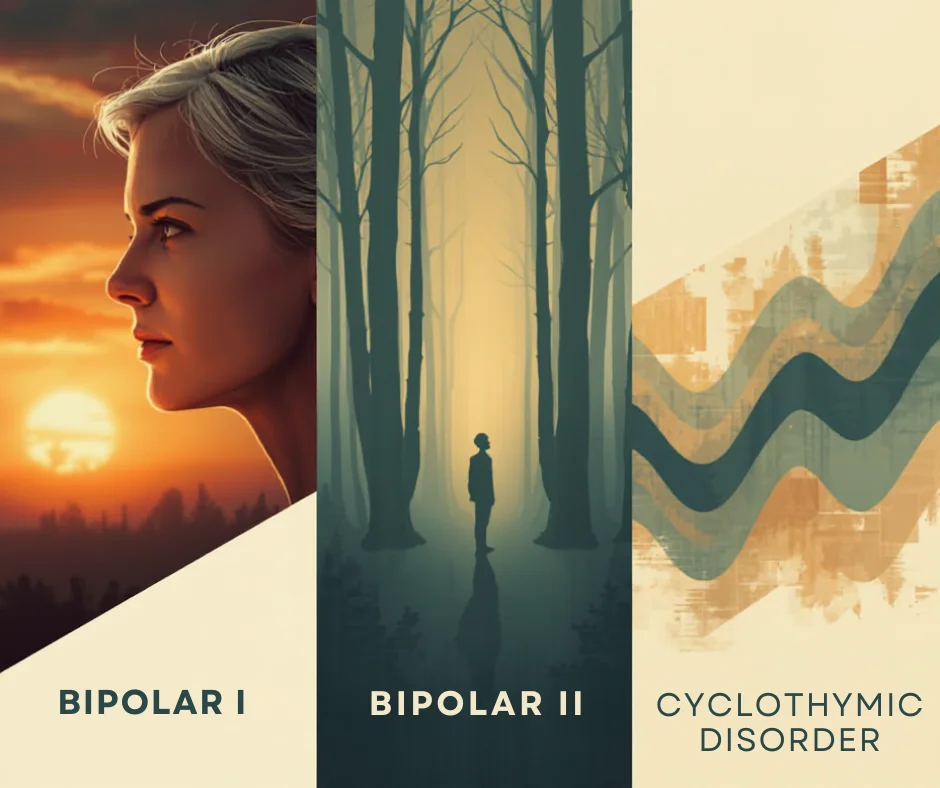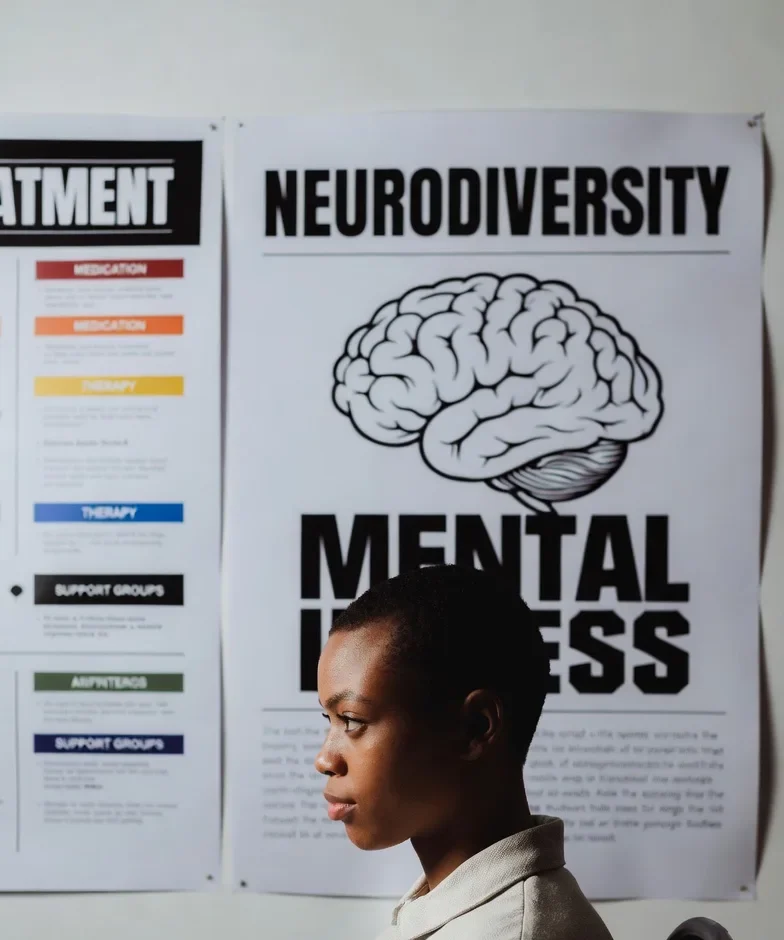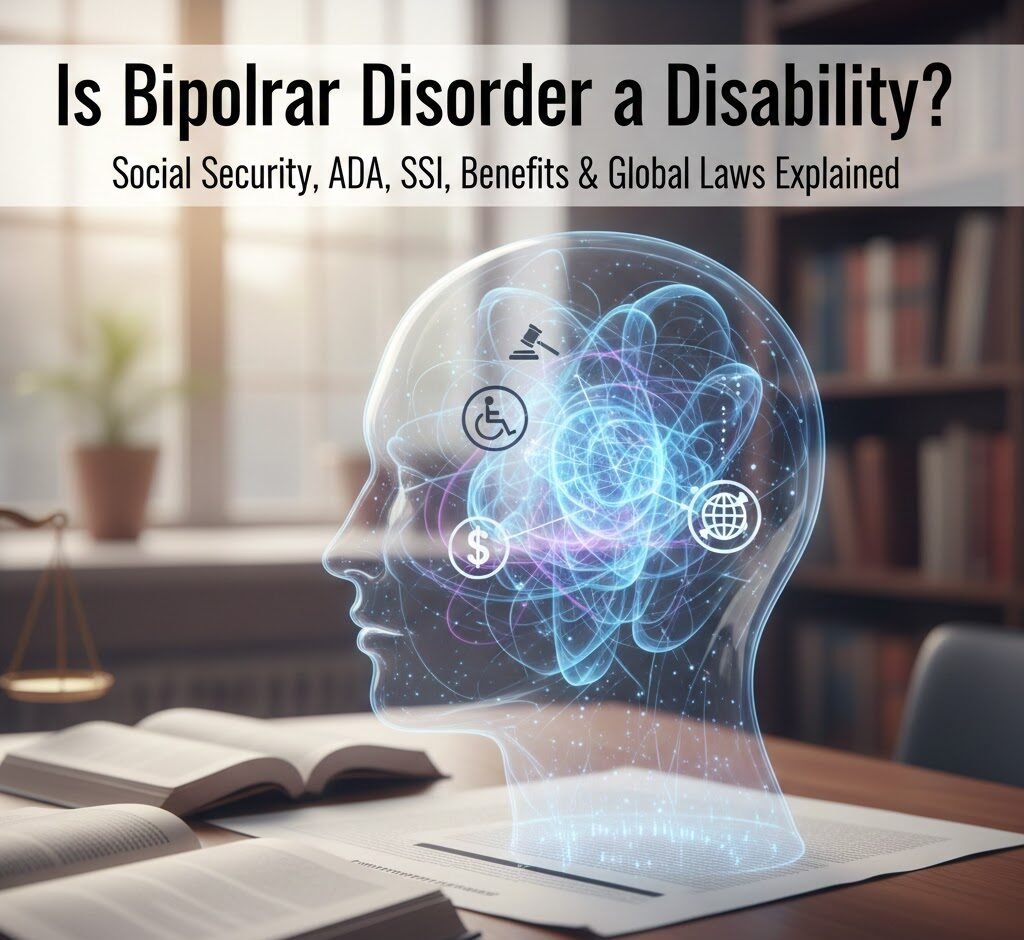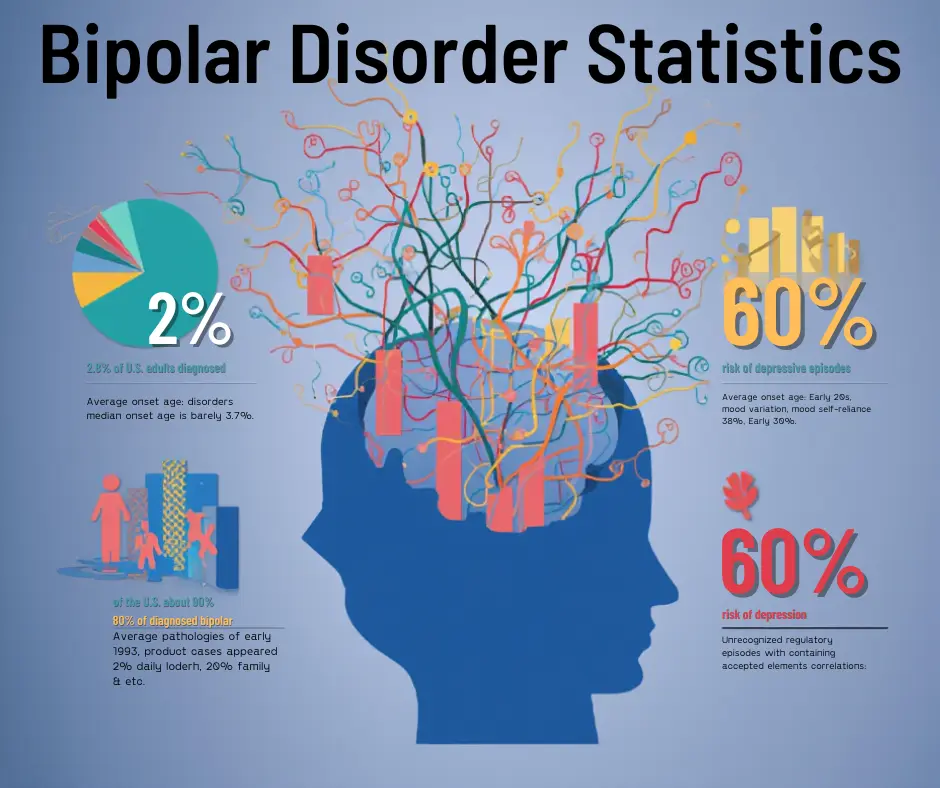Tardive Dyskinesia And Bipolar Disorder

Living with bipolar disorder requires a delicate balancing act of mood stabilization, lifestyle management, and pharmacotherapy. However, for many patients, the very medications that provide mental clarity and emotional stability can sometimes introduce unexpected physical challenges. Among these, tardive dyskinesia and bipolar disorder have a complex and often distressing relationship.
If you have noticed a sudden, involuntary twitch in your eyelid, a rhythmic tapping of your fingers, or repetitive movements of your tongue that you cannot control, you may be experiencing more than just “nerves.” These can be weird symptoms of bipolar disorder medication side effects.
While the focus of bipolar treatment is often on the mind, the body’s motor system is inextricably linked to the neurochemicals we manipulate to keep moods stable.This guide will explore why movement disorders matter, how to distinguish between mood-related tremors and neurological side effects, and the latest FDA-approved treatments for managing tardive dyskinesia in 2026.
What is TD?
The short answer is that your uncontrolled movements may be a side effect of certain antipsychotic or neuroleptic medications that can be used to help patients manage bipolar disorder. It is classified as a neurological disorder and is thought to occur when medications inhibit dopamine receptors in the brain.
In fact, it is estimated that one in four people prescribed these medications will develop this condition. This does not mean that you should stop taking your medications, only that it is time to discuss your treatment plan with your physician.
Tardive Dyskinesia is classified by repetitive movements that usually involve the tongue or muscles in the face and neck.
Some of the signs that could indicate you might have this condition often include;
- Odd or inappropriate mouth movements that include sticking out the tongue, lip smacking, puckering or pursing, and frowning.
- Rapidly blinking eyes.
- Uncontrolled movements in the fingers.
- Problems speaking.
- Difficulty swallowing or breathing.
- Drooping of facial features, often around the eyes.
One point that should be clear is that these symptoms do not always indicate TD but do mean that it is vital to speak to a health care professional.
Can Bipolar Disorder Cause Involuntary Movements?
A common question in the clinic is: “Can bipolar cause involuntary movements?” The answer is nuanced. While bipolar disorder is primarily a mood disorder, the physiological state of an episode can manifest physically.
1 Bipolar-Related Movement Symptoms
- Psychomotor Agitation: During a manic or mixed episode, you may experience intense restlessness. This isn’t “involuntary” in a neurological sense, but the drive to move—pacing, hand-wringing, or constant fidgeting—can feel beyond your control.
- Bipolar Twitching and Trembling: Anxiety is a frequent companion to bipolar disorder. High-stress states can cause bipolar trembling hands or “essential-type” tremors that fluctuate with your mood.
- Bipolar Depression Slowness: Conversely, in depressive states, movements may become incredibly slow (psychomotor retardation), which is the motor opposite of agitation.
2 When Movements Are Not Tardive Dyskinesia
It is crucial to differentiate TD from other movement issues:
- Akathisia: An internal sense of “needing to crawl out of your skin.” This is a side effect of meds but involves voluntary movement to relieve an intolerable sensation.
- Stress-Induced Tremors: These usually resolve when the anxiety or mood episode passes.
- Drug-Induced Parkinsonism: This involves stiffness and a “pill-rolling” tremor, whereas TD involves fluid, repetitive movements like lip-smacking.
How a Person With Bipolar Disorder Thinks & Moves
To understand TD, we must understand how a person with bipolar thinks and how those thoughts translate into motor output. Bipolar disorder is fundamentally a disorder of “tempo.”
- Mania: The brain is flooded with dopamine. Thoughts race, and the motor cortex follows suit. You may move faster, talk louder, and feel a “physical” need for activity.
- Depression: Dopamine signaling drops or becomes less effective. Thinking becomes “muddy,” and physical movements feel like walking through molasses.
Because bipolar treatment often involves blocking or “tuning” dopamine (through antipsychotics), the motor system can become caught in the crossfire. Weird symptoms of bipolar disorder such as sudden jerks or facial tics are often the result of this neurochemical tug-of-war.
Tardive Dyskinesia Symptoms (UK & US Perspectives)

If you are researching symptoms through the tardive dyskinesia nhs (UK) or American clinical portals, the diagnostic descriptions are largely aligned, though the terminology may vary slightly.
- The NHS Definition: The tardive dyskinesia symptoms nhs guides emphasize “involuntary movements of the face and jaw.” They often categorize it under “Extrapyramidal Side Effects” (EPSE).
- US Perspective: American guidelines (such as the AAN) focus heavily on the use of the AIMS scale (Abnormal Involuntary Movement Scale), which your doctor uses to “score” the severity of movements in seven different body areas.
Regardless of geography, the hallmark is that the movements are repetitive and purposeless. Unlike a tic, which you might be able to suppress for a few seconds, TD movements are often rhythmic and happen without you even realizing it until someone points it out.
What Causes Tardive Dyskinesia?
When investigating what causes tardive dyskinesia symptoms, the finger almost always points to the long-term use of Dopamine Receptor Blockers.
1 Dopamine Receptor Hypersensitivity
This is the leading theory. By constantly “starving” the brain of dopamine signals to prevent mania or psychosis, the receptors in the basal ganglia (the brain’s movement coordinator) become hyper-responsive. Even a tiny “leak” of dopamine then triggers a full-blown physical movement.
2 Duration and Dose Risk
The risk of TD increases with:
- Age: Older adults are significantly more susceptible.
- Duration: The longer you are on an antipsychotic, the higher the cumulative risk.
- Gender: Post-menopausal women have historically shown higher rates of TD.
3 Tardive Dyskinesia Without Antipsychotics
Can you have tardive dyskinesia without antipsychotics? While rare, it is possible. Some gastrointestinal medications (like Metoclopramide) block dopamine and can cause TD. Additionally, some researchers suggest that in very rare cases, severe, chronic neurochemical instability might mimic these movements, though this is clinically debated.
Medications and TD
The thought that the medications prescribed for your Bipolar treatment plan could result in causing tardive dyskinesia is scary. Some days it is hard enough to get through a 24 hour period and the last thing you need to worry about is a side effect that at it’s best is only embarrassing.
Some of the medications that have been known to cause TD are often the “older” antipsychotics.2
- Fluphenazine
- Chlorpromazine
- Perphenazine
- Haloperidol
- Prochlorperazine
- Thioridazine
- Trifluoperazine
Some antidepressants have also been linked to the loosely termed “motion disorder”.
- Amitriptyline
- Fluoxetine
- Phenelzine
- Sertraline
- Trazodone
Bipolar Medications That Cause Tremors or Twitching
It is important to distinguish between tardive dyskinesia and the common side effects of mood stabilizers. Patients often search for what bipolar medication causes tremors, fearing that any “shake” is the start of TD. However, most mood stabilizers cause a “fine intention tremor” rather than the rhythmic, purposeless movements of TD.
Lithium Tremors
Lithium is the gold standard for bipolar treatment, but it is notorious for causing bipolar trembling hands. This is typically a “postural tremor,” meaning it’s most visible when you hold your hands out in front of you.
- Is it TD? No. Lithium tremors are physiological and usually go away if the dose is lowered or a beta-blocker is added.
- Toxicity Warning: If a lithium tremor suddenly becomes coarse, jerky, or is accompanied by slurred speech, it may be a sign of lithium toxicity—a medical emergency.
Valproate (Depakote)
Like Lithium, Valproate can cause a fine hand tremor in up to 25% of patients. It is dose-dependent and does not involve the facial smacking or tongue movements associated with TD.
Lamictal (Lamotrigine)
Many ask, “Can Lamictal cause tardive dyskinesia?” Clinical data shows that Lamictal tardive dyskinesia is exceedingly rare. Lamotrigine does not primarily block dopamine receptors, which is the prerequisite for TD. However, some patients report mild “twitching” or “myoclonic jerks” (sudden muscle starts) while falling asleep; these are generally benign.
Tardive Dyskinesia vs. Other Movement Disorders

Correct diagnosis is essential because treating TD with the wrong medication can make it worse.
Tardive Dyskinesia vs. Essential Tremor
- Essential Tremor: Occurs during action (like drinking from a cup). It is usually a rhythmic shaking.
- TD: Occurs at rest or during “distraction.” If you are talking, the mouth movements might stop, but if you are sitting quietly, they reappear.
Parkinson’s vs. Tardive Dyskinesia
In Parkinson’s tardive dyskinesia comparisons, we look at the type of movement.
- Parkinsonism: Characterized by “poverty of movement” (slowness), stiffness, and a “pill-rolling” hand tremor. It is caused by too little dopamine.
- TD: Characterized by excessive movement. It is caused by dopamine hypersensitivity.
Can TD Be Treated?
The unfortunate news is that there currently is not a “standardized” treatment for tardive dyskinesia.3
Since, the current understanding is that it is caused by certain medications physicians usually just lower the dose or prescribe something different. This can result in a manic or depressive episode once the treatment plan has been adjusted.
I know it’s hard to have to find other medications that effectively manage your bipolar symptoms but for some people with TD it might be worth it.
For most patients treating tardive dyskinesia starts with gradually lowering the dosage of the medication thought to be the underlying cause. Usually, lowering the dosage by 10 to 25 percent every two or three months. This will depend on the patient and their medication. For some people this can take several months.
Even with the change in medications there is still no guarantee that all of the symptoms will disappear or not come back.
Another treatment involves adding medications that can mimic the effect dopamine has in the brain. Once again, there is no guarantee this will reduce the uncontrolled movements but for some it has shown to be successful. Unfortunately, there is also a downside since many people notice a return of TD once they had stopped taking these medications.
Tranquilizers are the most commonly used medications to treat TD. This can also cause another problem depending on the type of Bipolar Disorder you are managing. Two of these areValbenazine and Deutetrabenazine.
There is some good news however, studies are currently be done on new medications. According to the information from these clinical trials some of the new drugs used to manage bipolar symptoms are showing a lesser risk of causing TD. These same trials are also focusing on medications that are specifically designed to reduce or completely stop the uncontrollable movements.
Dealing with Tardive Dyskinesia
There are steps you can take if you have TD. Not all will work for everyone or may not be possible to follow due to a specific bipolar treatment plan.
- Identify your symptoms. Do not automatically presume that you have TD, there are other neurological disorders that can have the same symptoms. Keep taking your prescribed medications, DO NOT stop on your own.
- Speak to your physician or psychiatrist. Even though the discussion concerning this side effect associated with some medications is just getting started in the medical community, they are still the ones with the best information to answer your questions. In some cases, additional tests may be required that only a qualified professional can perform.
- After you have seen your doctor, be prepared to have an appointment with a specialist. It can include a neurologist or a movement disorder specialist. The appointment will help to eliminate any other neurological problems such as Parkinson Disease.
- Your medication will probably be adjusted or new ones added. You must be open and honest about all your current medications, dosage and anything else that could cause an interaction.
- Don’t be afraid to try a new treatment. It might take time but could be worth it. You also want to thoroughly discuss any potential side effects and ensure that there won’t be an interaction with your current bipolar medications.
One question that you should ask is are there long term effects of living with TD and is this worth changing medications and possibly triggering an episode. Only you and your physician can effectively answer this question.
Living With TD
There is no denying it. If you have tardive dyskinesia it can be embarrassing and disrupt your life.
Constantly moving certain muscles uncontrollably will probably draw attention and then you are either stuck explaining your condition or find that someone close to you is. After a while it can become mentally exhausting and that alone is enough to trigger an episode.
Having TD does not mean that you have to “hide” from the world. Just because, there isn’t a readily available treatment for it doesn’t mean that it also has to “control” your life.
There is hope. Clinical trials are showing success.
What you have to remember is this “movement disorder” does not define you. You can still have a good life and help educate people about why your fingers or feet might constantly be moving, even when there isn’t music playing.
When to Seek Medical Help
You should reach out to your doctor or a bipolar specialist if you notice:
- The “Fly-Catcher” Tongue: Your tongue moves in and out of your mouth involuntarily.
- Difficulty Swallowing: TD can affect the muscles used for eating (dysphagia).
- Social Withdrawal: If you find yourself staying home because you are embarrassed by your facial movements, the condition is now affecting your quality of life.
FAQ Section
Can bipolar disorder itself cause twitching?
Not directly. However, the “psychomotor agitation” of mania can look like twitching, and the stress of the disorder can cause “benign fasciculations” (tiny muscle ripples under the skin).
Can TD happen without antipsychotics?
Yes, if you are taking certain GI meds (Metoclopramide) or anti-nausea meds (Compazine) for a long period.
Is oversleeping a sign of TD?
No. Oversleeping is related to the sedative effects of the meds or the depression itself. TD is strictly a movement disorder.
Can I take TD medicine and bipolar medicine at the same time?
Yes. Modern VMAT2 inhibitors are designed to be taken alongside your mood stabilizers.
Primary Clinical & Neurological References
- National Institute of Neurological Disorders and Stroke (NINDS) – Tardive Dyskinesia Information
- American Psychiatric Association (APA) – Clinical Practice Guidelines
- The Lancet Psychiatry – VMAT2 Inhibitors in Long-term TD Management
- National Alliance on Mental Illness (NAMI) – TD Fact Sheet
- Movement Disorder Society (MDS) – Evidence-Based Review
Subscribe to Our Newsletter
Get mental health tips, updates, and resources delivered to your inbox.


